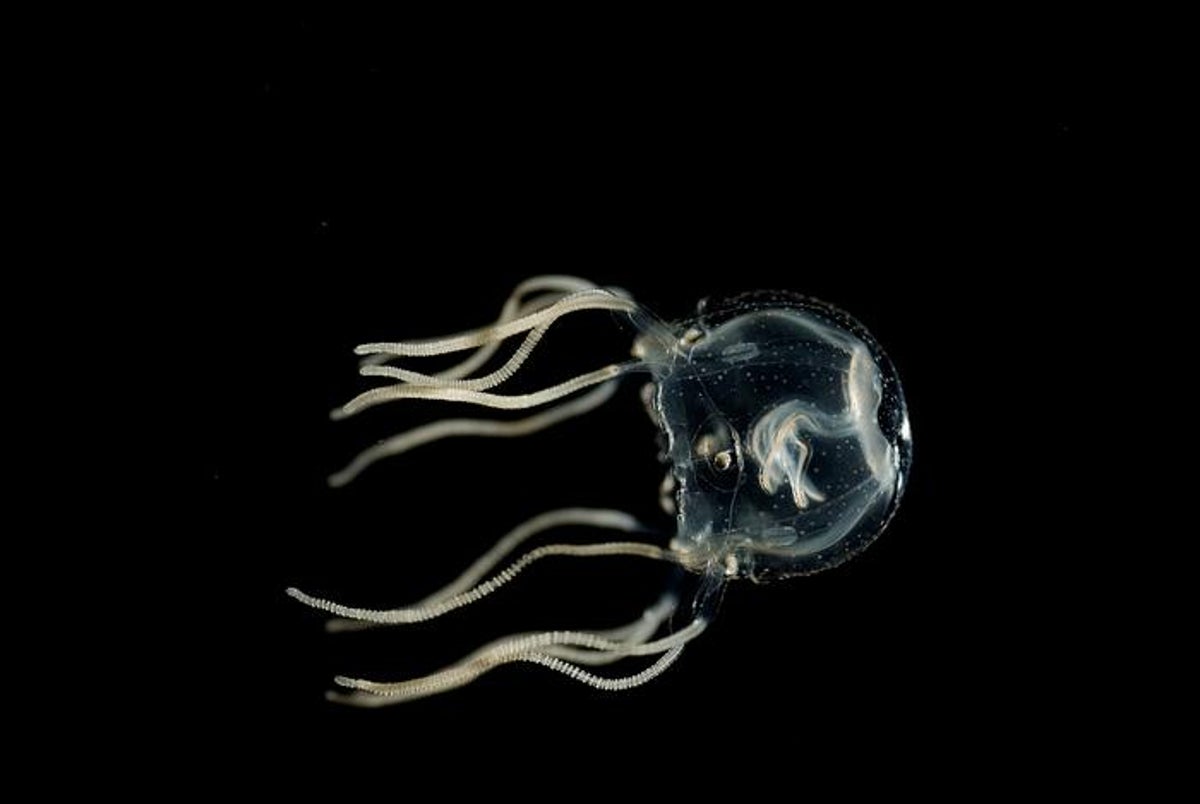
Box jellyfish, known to carry one of the deadliest venoms in the world, can learn from past experiences like humans without having a central brain and are more advanced than previously thought, according to a new study.
Researchers, including those from the University of Copenhagen in Denmark trained Caribbean box jellyfish (Tripedalia cystophora) to learn to spot and dodge obstacles.
The study, published last week in the journal Current Biology, found that despite having only a thousand nerve cells and no brain, the jellies could acquire the ability to avoid obstacles via associative learning.
This is a process through which organisms with a centralised brain like humans, mice and rats form mental connections between sensory stimulations and behaviors.
The new findings, according to researchers, challenges previous notions that advanced learning requires a centralised brain and sheds light on the evolutionary roots of learning and memory.
With a bell-like body, no bigger than a fingernail, the jellies survive in mangrove swamps using its complex vision with 24 eyes to steer through murky waters and swerve around underwater tree roots to snare prey.
In the latest study, researchers dressed a round tank with gray and white stripes to simulate the jellyfish’s natural habitat, with gray stripes mimicking mangrove roots that would appear distant.
They then observed the jellyfish in the tank for 7.5 minutes.
While the jelly initially swam close to these seemingly far stripes and bumped into them frequently, scientists found that this soon changed.
By the end of the experiment, researchers observed that the jelly increased its average distance to the wall by about 50 per cent, quadrupled the number of successful pivots to avoid collision and cut its contact with the wall by half.
The findings suggest jellyfish can learn from experience through visual and mechanical stimuli even though they do not possess a central brain.
“So, despite having a mere one thousand nerve cells – our brains have roughly 100 billion – they can connect temporal convergences of various impressions and learn a connection – or what we call associative learning,” study senior author Anders Garm of the University of Copenhagen said.
“And they actually learn about as quickly as advanced animals like fruit flies and mice,” Dr Garm said.
Researchers once believed jellyfish are capable of only the simplest forms of learning such as habituation – the ability to get used to a certain stimulation, such as a constant sound or constant touch.
However, the new research indicates they have a much more refined ability to learn, with the capacity to even learn from their mistakes and modify their behavior – to remember and learn.
“Looking at these relatively simple nervous systems in jellyfish, we have a much higher chance of understanding all the details and how it comes together to perform behaviors,” Dr Garm said.
“For fundamental neuroscience, this is pretty big news. It provides a new perspective on what can be done with a simple nervous system,” he added.
Further studies to unravel the mechanism by which jellies learn can help better understand “what memory is, which is a central problem in dementia,” scientists say.
“I don’t claim that we are finding the cure for dementia...we may be able to lay a building block to better understand the disease and perhaps counteract it,” Dr Garm added.







